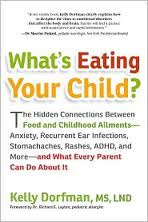Living the difficult reality of autoimmune diseases becomes even more daunting in face of the barrage of information about their causes and treatments. But at a groundbreaking presentation for
NAA NY Metro Chapter in collaboration with Beth Israel Medical Center’s Division of Developmental Pediatrics on April 7, 2011, Dr. Sidney Baker provided a unique perspective, effective treatment options, and hope for those struggling with these diseases.
“Until proven otherwise – all chronic illness is autoimmune,” Dr. Baker said and explained that autoimmune diseases share common roots of problems in oxidative stress, detoxification, and inflammation. Connecting these commonalities in autism, Alzheimer’s, and Parkinson’s is the challenge Dr. Baker is facing every day. “There’s not much light difference between these shades,” he said.
Citing several stories of patients with chronic illness who responded well to his treatment options, Dr. Baker argued for “an approach that focuses on each person as an individual.”
Dr. Baker spoke of a woman he treated for many years. As she grew older, she suffered from dementia and began to wander from home. Dr. Baker explained that nothing seemed to help her, including prescription drugs, until he happened on a recommendation of using a combination of the herb Valerian and Chamomile tea. To his surprise, these natural treatments helped and with their regular use the woman’s wandering stopped. The moral of the story, Dr. Baker said was simple – subtle therapies work!
Dr. Baker shared another story of a 15.5 months old child who had stopped growing, an emergency situation for a toddler. With the right combination of treatments, including, among other things, specific dosages of Trichuris Suis Ova (TSO), and coenzymes and probiotics, the child’s autism symptoms disappeared and he is now healthy and growing.
Cases like these and over four decades of experience led Dr. Baker to form a paradigm that asks two basic questions: 1. Does this person have a special unmet need to get something beneficial? 2. Does this person have a special unmet need to avoid or get rid of something allergic or toxic? Finding answers to these questions is crucial in finding effective treatments.
“Nothing is as hasty as a diagnosis,” Dr. Baker said because it can distract you off of the path to recovery and cure.
Sharing some of his experience from medical school, Dr. Baker recalled that in a case of a child with developmental problems, one of his teachers said, “don’t look for answers.” Someone from the audience asked why a teacher would instruct students not to look for answers. Dr. Baker responded that the teacher wanted to dissuade the future doctors from giving parents “false hope.” He added that experience has taught him that “there is no such thing as false hope.”
Dr. Baker has authored several books and is the Associate Editor of the Journal of Integrative Medicine, and has a private practice in Sag Harbor, NY, focusing on complex chronic illness. Most recently, his research interests include the development of a patented coding system for medical narrative that forms the basis for
Autism360.org, a website funded by The Moody’s Foundation providing interchange between individual and collective medical experience and “letting the data talk.”












